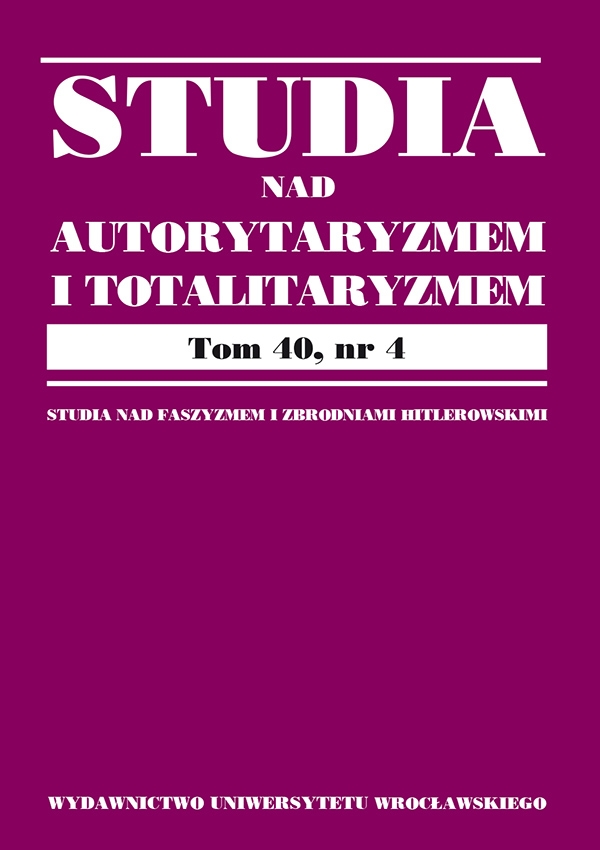

Artykuły

TOTALITARIAN REGIME AS A SYSTEM OF STRUCTURAL FUNCTIONALISM IN THE LITERATURE OF JANUSZ A. ZAJDEL
In the Polish literature of the last two decades of the Polish People’s Republic PRL, science fiction, especially sociological science fiction, served as a substitute for political literature, which was impossible to publish under state censorship. The majority of this genre was anti-utopian or critical of the totalitarian reality. This attitude was hidden under fantastical make-up and was very strongly related to the here-and-now of the period in which the books originated. Janusz A. Zajdel is the most important representative of this genre, however, at the same time he manages to avoid limiting his work to the thinly veiled politics of the time. While the topics of his work very often repeated themselves the stories go beyond the drama of the individuals or groups confronted with the totalitarian regime and focus on certain repeatable mechanisms within the system itself. Due to the above characteristics, his literary work transcends from being just a criticism of the internal workings of PRL into the area of structural functionalism of a universal social system.
Social structures that play a central role in Zajdel’s work, are always built from the same, very clearly outlined building blocks. It may seem that the characters and the plot of the novels are only an addition to the views on the structure and the shape of society expressed by the author. Common elements that build that world remain at the core of all the novels and the pretextual story lines of Zajdel make it easier to present those elements in the internal functioning of the sometimes very complicated social systems that Zajdel describes. Dysfunctional elements that prevent the exercise of totalitarian control inside the system, for Zajdel seem to be of far greater importance than his story lines.
These relations, so characteristic of the late PRL, referred to in the literature as “dirty togetherness”, are phenomena of exercising control over specific measures and social resources available in the framework of the social system for the implementation of not the objectives, which were designated by those socio-political systems, but by social groups or entities that use them for their own purposes. The main theme of Zajdel’s novels are dysfunctions that occur as part of the totalitarian system, but his social systems never meet the defining criteria of totalitarianism in the classic sense. Totalitarianism is not the main intrest of the novels but is only used instrumentally as the make-up for the description of the mechanism of the internal workings of these dysfunctions. Zajdel sees dirty togetherness as a structural element of the system, without which the continuous functioning of the system would be impossible.